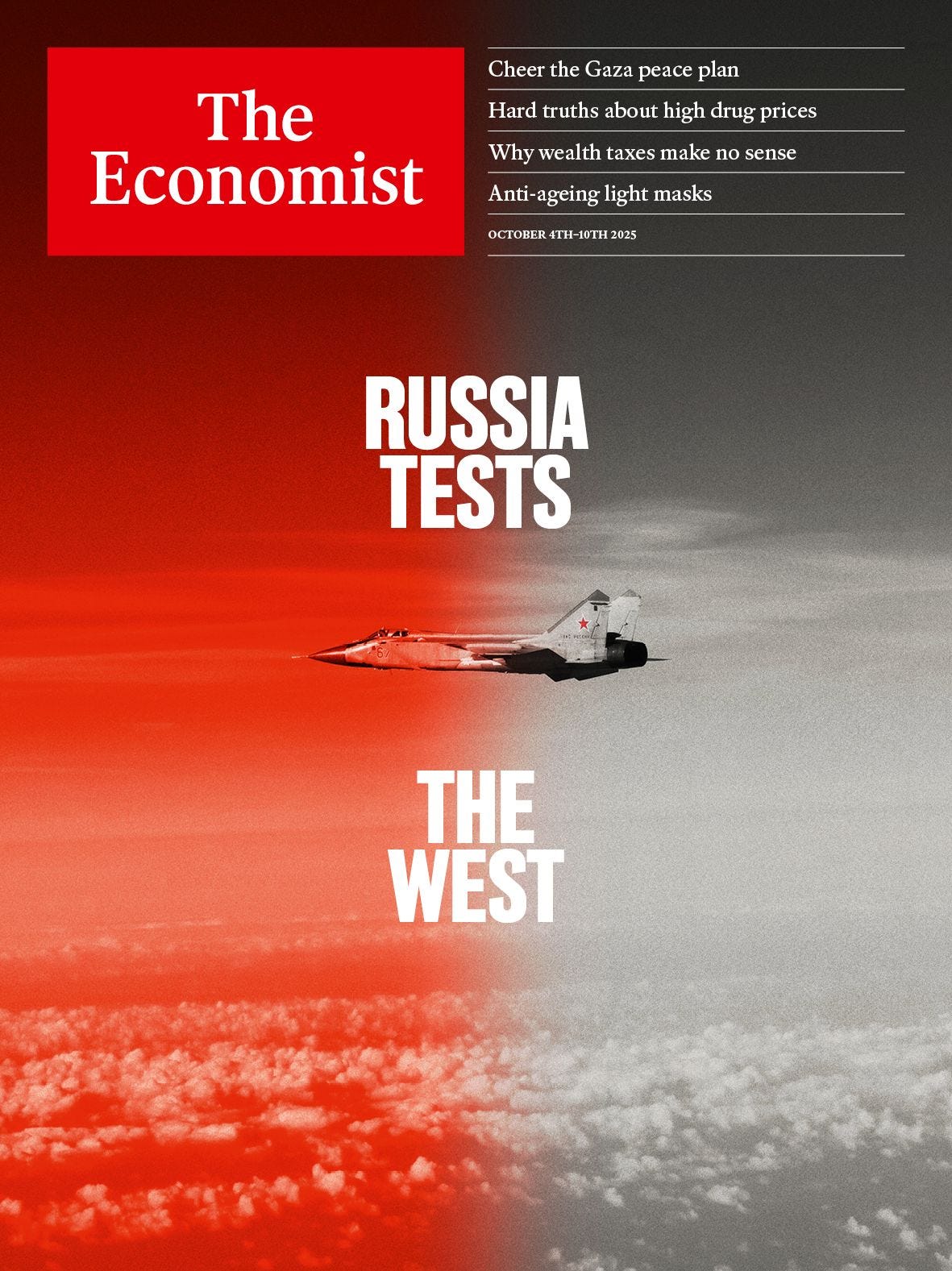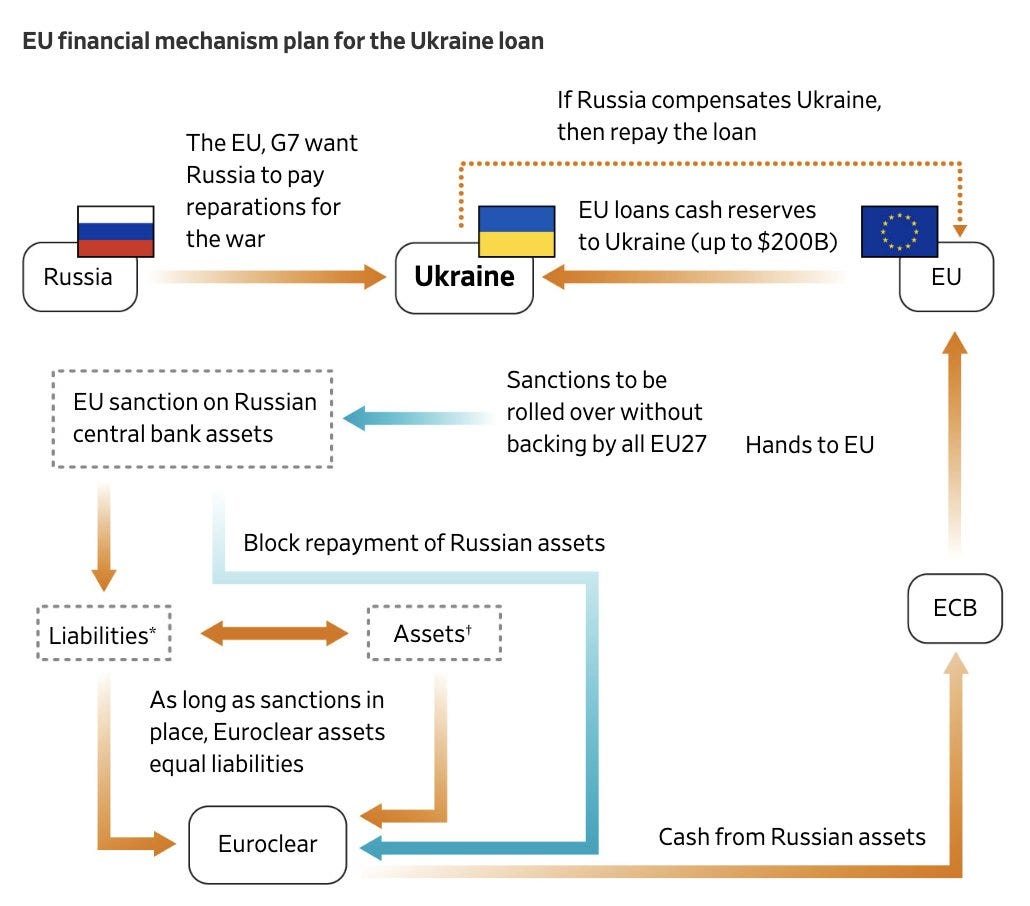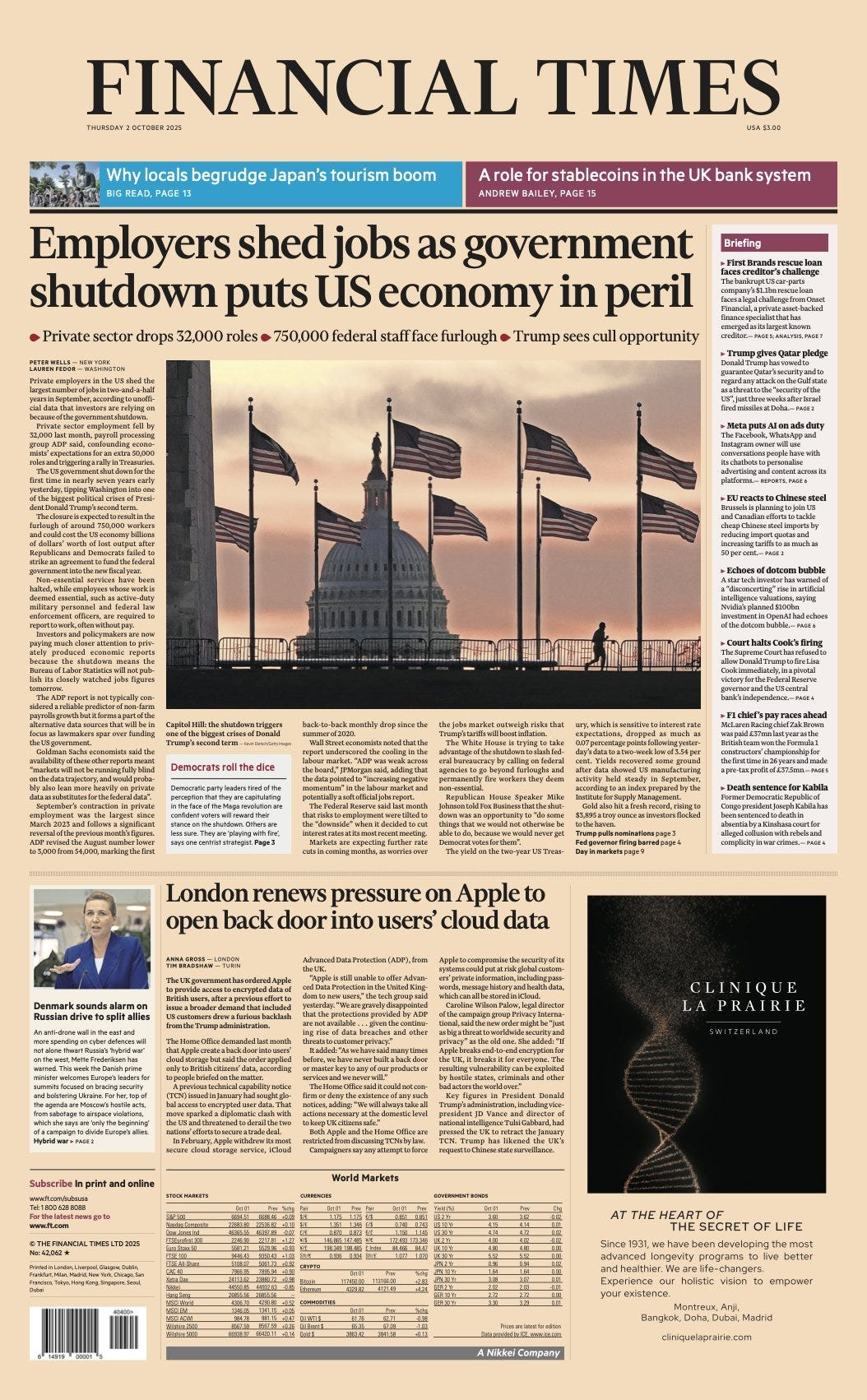Putin’s Threats, Europe’s Hesitation & Ukraine’s High Stakes
Europe is still “sleepwalking” through the gravest security crisis in decades. With Russia escalating drone incursions & pushing into fortress cities, the stakes for Kyiv & Europe couldn't be higher
The United States will provide Ukraine with intelligence on long-range energy infrastructure targets within Russia, two officials told Reuters on Wednesday, as it weighs whether to send Kyiv missiles that could be used in such strikes. The U.S. is also asking NATO allies to provide similar support, the U.S. officials said, confirming details first reported by the Wall Street Journal. The decision represents the first known policy change that President Donald Trump has signed off on since hardening his rhetoric toward Russia in recent weeks in an attempt to end Moscow’s more than three-year-long war in neighboring Ukraine. Washington has long-been sharing intelligence with Kyiv, but the Wall Street Journal said it will now be easier for Ukraine to hit infrastructure like refineries, pipelines and power plants with the aim of depriving the Kremlin of revenue and oil. Trump has been pressing European countries to stop buying Russian oil in exchange for his agreement to impose tough sanctions on Moscow in a bid to try to dry up funding for Russia’s invasion of Ukraine. The move comes as the United States also considers a Ukrainian request to obtain Tomahawks, which have a range of 2,500 km (1,550 miles) - easily enough to hit Moscow and most of European Russia if fired from Ukraine. Ukraine has also developed its own long-range missile named the Flamingo, but quantities are unknown as the missile is in early production. According to U.S. officials cited by the Wall Street Journal, the approval for additional intelligence came shortly before Trump posted on social media last week suggesting that Ukraine could retake all its land occupied by Russia, in a striking rhetorical shift in Kyiv’s favor - Reuters
Ukrainian President Volodymyr Zelensky warned European leaders on October 2 that Russia has the ability to violate airspace anywhere on the continent and urged them to develop defense forces to fend off drones. “If the Russians dare to launch drones against Poland, or violate the airspace of northern European countries, it means this can happen anywhere,” Zelensky told European leaders gathered for a summit on security and defense in Copenhagen. “In Western Europe, in the south, we need fast and effective response and defense forces that know how to deal with drones,” he said. The summit of the European Political Community comes after drone sightings in Denmark forced the closure of Copenhagen’s airport on September 22 and after multiple Russian drone incursions into the airspace of other European countries. Danish Prime Minister Mette Frederiksen, who is hosting the meeting, said Ukraine currently is the world’s expert on defending against drones, and suggested other European countries “take all the experiences, all the new technology, all the innovation from Ukraine, and to put it in our own rearming.” - RFE/RL
Putin’s Threats, Europe’s Hesitation & Ukraine’s High Stakes | CNN with Michael Bociurkiw
Live from Moldova on CNN’s Isa Soares Tonight, I warn that Europe is still “sleepwalking” through the gravest security crisis in decades. With Russia escalating drone incursions and pushing into fortress cities like Konstantinovka, the stakes for Ukraine—and Europe—couldn’t be higher.
Why Putin’s threats are aimed as much at Europe as at his domestic audience
How €140 billion in frozen Russian assets could close Ukraine’s $3.5B/month budget gap
Why Belgium is blocking the deal, and what’s at risk if Europe delays
The nightmare scenario: bomb shelters in schools if Europe fails to act now
“The choice is simple: pay less now, or pay much, much more later.”
👉 Watch for sharp insights on Putin’s hybrid war, Europe’s dangerous indecision, and the battlefield realities in eastern Ukraine.
🔔 Subscribe for more frontline analysis from Ukraine, Moldova, and beyond.
Bart De Wever, the prime minister of Belgium, has directly called on the European Commission and all member states to provide decisive answers and robust guarantees before using Russia’s immobilised assets to issue a €140 billion loan to Ukraine, an audacious plan that is set to test the limits of international law. “I want the maximum of legal certainty. I want solidarity. And I want transparency on the situation in the other countries,” De Wever said in a press conference on Thursday, held on the sidelines of a European summit in Copenhagen. “I don’t think this is an unreasonable position.” The proposal devised by the Commission has thrown Belgium under the spotlight: the country houses Euroclear, the central securities depository that holds the bulk of the Russian Central Bank’s assets frozen by Western allies in the early days of the war. Under the scheme, which is still in early stages, Euroclear would transfer the cash balances to the Commission. The Commission would then issue a €140 billion loan to Ukraine, disbursed gradually over time and subject to conditions. Ukraine would be asked to repay the loan only after Russia agrees to compensate for the damages caused. Hence, the name “Reparations Loan”. Afterwards, the Commission would repay Euroclear, and Euroclear would repay Russia, completing the circle. Given that the Kremlin is unlikely to provide reparations, the plan could be seen, in practice, as confiscation of sovereign assets, which is illegal under international law. In his remarks, the premier repeatedly described the Russian assets as “the chicken” and their windfall profits as “the eggs”. So far, the EU has only captured the extraordinary revenues to reinforce support for Ukraine, leaving the money itself untouched. But the new plan would go further and move the entire cash pot, potentially removing a powerful leverage for Kyiv and its allies at the negotiating table. “The question now is: can we eat the chicken?” De Wever asked. “The first problem, of course, is that you lose the golden eggs if you eat the chickens. You have to consider that. If you put the chicken on the table and you eat it, then you lose a golden egg.” The premier, however, recognised the urgency to increase assistance to Kyiv after the change in policy of the United States, which has virtually cut off the funds. President Donald Trump has often framed the invasion strictly as a European problem. Kyiv is estimated to need €60 billion between 2026 and 2027 to plug its budgetary deficit, and a similar amount to procure weapons and ammunition - Euronews

UK Prime Minister Keir Starmer says Britain must defeat rising antisemitic hate, after two people are killed in an attack at a Manchester synagogue. Directly addressing the UK’s Jewish community, he says he’ll do everything in his power to give “the security you deserve.” Two people died and four are in hospital after a man drove a car at members of the public before stabbing people. Police have declared it a terrorist incident. Police shot the attacker dead within seven minutes of the first 999 call; officers later made two other arrests - here’s what else we know about today’s attack. Video of the incident shows police shouting “get back - he has a bomb!” but officers later confirm the device was “not viable.” Police say a “large number of people” were worshipping at the Heaton Park synagogue - today is Yom Kippur, the holiest day in the Jewish calendar - BBC
If you’ve been finding value in my reporting and analysis, now is the perfect moment to upgrade to a paid subscription to World Briefing. Your support makes this work possible and keeps independent commentary alive.
Prefer another route? You can join my Patreon community or support my mission directly via PayPal. Every contribution helps me bring you on-the-ground insights and behind-the-scenes analysis.
The Trump administration isn’t ruling out launching military strikes inside Venezuela as it continues its campaign against drug cartels, a senior Trump administration official confirmed to Semafor. “If Venezuela is sending drug cartels to the United States by land or sea, he’ll consider action on it,” the official added, expanding on comments made by Trump earlier this week hinting at further action against alleged cartel members “coming by land.” The comments forecast what might be next for Venezuela, after Trump asserted there are “absolutely no drugs” coming into the US by water following the administration’s deadly strikes against alleged drug boats off the Venezuelan coast. Notably, the US military continues its buildup in the region — prompting Venezuelan leader Nicolás Maduro to make preparations this week for a state of emergency in the country.







